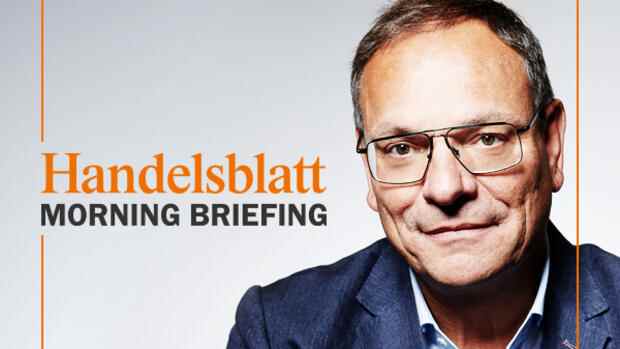on the world stage in a rather battered theater an unexpected actor appears: Pope Francis. In an interview with the “Corriere della Sera”, the 85-year-old expressed himself in a way nobody expected.
- The pontiff calls NATO’s eastward expansion NATO’s “barking” at Russia’s door. While it is an exaggeration to say that the NATO presence in neighboring countries “provoked” Moscow, it “maybe facilitated” the invasion.
- Francis also addresses his self-invitation to travel to Moscow. So far no answer has been received, “but we continue to insist, even though I fear that Putin cannot and does not want to attend this meeting at this point in time”. But how else can you stop such brutality, asks Francis, drawing a comparison to a genocide with up to a million dead: “Twenty-five years ago we experienced the same thing in Rwanda.”
- Finally, Kyrill, Patriarch of the Russian Orthodox Church, gets his fat off. Francis divulges that he spoke to him via zoom for 40 minutes: “In the first twenty minutes he read me the justifications for the war with a piece of paper in his hand”. He then explained to Kyrill that he “could not become Putin’s acolyte”.
The Kremlin moderates a conversation with the Pope, a conversation with Cyril the Pope. Bible scholars know: “Whoever sows sparingly will also reap sparingly; and whoever sows in blessing will also reap in blessing.”
Top jobs of the day
Find the best jobs now and
be notified by email.
Patriarch Kirill should also be on the EU’s sixth major Russia sanctions list, which Ursula von der Leyen presented with grandeur. There are 57 people on it, including the suspected war criminals from Bucha. An oil embargo is also planned – until the end of the year and in some cases with longer deadlines – although Hungary, Slovakia and the Czech Republic have signaled concerns. There should also be no more business with Sberbank, the largest Russian financial institution.
My colleague Jens Münchrath comments that it is a “bogus embargo”. Three necessary requirements are not met, namely unity, speed and a surprise effect. His verdict: “poorly made by hand”.
(Photo: Bloomberg)
A balance sheet total of $8.9 trillion is a veritable monster for a central bank in the long run. No wonder that Jerome Powell, head of the Fed in Washington, now wants to cut sharply – possibly by around 1.6 trillion by the end of 2023. His institution simply no longer replaces maturing bonds. The most striking sign of the end of the lax monetary policy as a response to 8.5 percent inflation is the increase in key interest rates. They will rise by 0.5 points to a level of 0.75 to 1.0 percent – the last time there was such a big step was in 2000. Deutsche Bank already anticipates an interest rate of 3.6 percent.
Yesterday, Fed Chairman Powell addressed the population directly as a mixture of economic therapist and social worker: “Inflation is far too high and we are aware that this has serious consequences, especially for all those who are particularly concerned about the higher costs Food, housing and gas just can’t cover it.”
From the great George Bernard Shaw there is the bon mot: “Old people are dangerous, they are not afraid of the future.” And so the powerful European civil servant Klaus Regling, 71, just got going again shortly before retiring in autumn. The European bailout fund ESM, for which he is responsible, is to become the linchpin of a new financial order in the euro area.
The plan is no less than a new 250 billion euro bailout against crises through no fault of their own. “In view of the recent major shocks that Europe has experienced from the pandemic and most recently from the war in Ukraine, this is a timely contribution,” says the ESM paper that we have. Especially since there are also “climate-related risks” that “inevitably affect our economies”.
The hope: it can rain as much as it wants, with this protective umbrella Europe will stay dry.
The Hohenzollern conflict over thousands of art treasures and compensation is decided in court. Georg Friedrich Prince of Prussia failed with his advances for a settlement, for which only Finance Minister Katrin Lange (SPD) was on the political side. The public sector rejects conciliation negotiations, reports the “Tagesspiegel” with reference to a letter from the Brandenburg Ministry of Finance to the Administrative Court in Potsdam.
Now a judge has to decide in the proceedings about 1.4 million euros in compensation for Hohenzollern properties that were expropriated by the Soviets in 1945. It is then about the Nazi involvement of the then Crown Prince Wilhelm, who had called for Hitler’s election. Compensation is excluded if the former owners of the Nazi dictatorship had made “significant advances”.
And then there is Thomas Strobl (CDU), Minister of the Interior of Baden-Württemberg, who has to deal with the Stuttgart public prosecutor’s office. She launched an investigation on suspicion of instigating prohibited communications about court hearings.
The background is a “sex affair”: An inspector of the state police is said to have sexually harassed a chief inspector in a video call – Strobl passed on a letter from the accused’s lawyer to a journalist. He was concerned with “avoiding damage to the state police,” says Strobl. For him, the lawyer’s letter is not a document, but it is for the public prosecutor’s office.
Orson Welles knew: “Being right is only half the fun when no one else is wrong.”
Her
Hans Jürgen Jakobs
Senior editor
